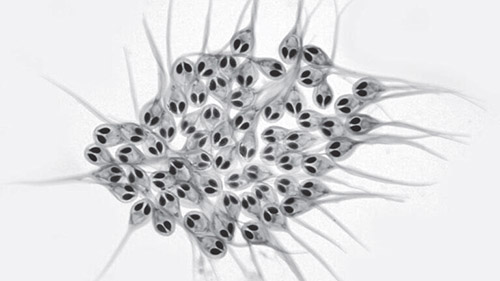
Israeli accidental discovery ‘shows that evolution can go in strange directions,’ says lead researcher.
(Israel21c) A non-oxygen breathing creature, unexpectedly discovered by researchers at Tel Aviv University, challenges widely held assumptions about the animal world.
The tiny salmon parasite is a relative of jellyfish and corals. Apparently, over time it gave up breathing and consuming oxygen to produce energy.
“Aerobic respiration was thought to be ubiquitous in animals, but now we confirmed that this is not the case,” said lead researcher Prof. Dorothee Huchon of the School of Zoology at TAU’s Faculty of Life Sciences and Steinhardt Museum of Natural History. “Our discovery shows that evolution can go in strange directions. Aerobic respiration is a major source of energy, and yet we found an animal that gave up this critical pathway.”
Some other organisms like fungi or amoebas in anaerobic environments (those lacking free oxygen) have lost the ability to breathe over time. The new study demonstrates that the same can happen to an animal—possibly because the parasite happens to live in an anaerobic environment.
“It’s not yet clear to us how the parasite generates energy,” said Huchon. “It may be drawing it from the surrounding fish cells, or it may have a different type of respiration such as oxygen-free breathing, which typically characterizes anaerobic non-animal organisms.”
“It is generally thought that during evolution, organisms become more complex,” Huchon concluded. “But here is an animal whose evolutionary process is the opposite. Living in an oxygen-free environment, it has shed unnecessary genes responsible for aerobic respiration and become an even simpler organism.”













